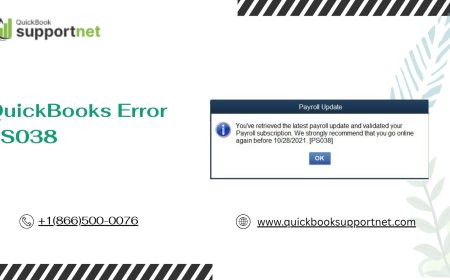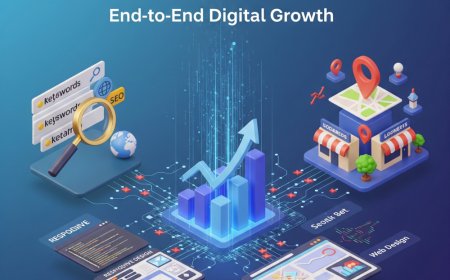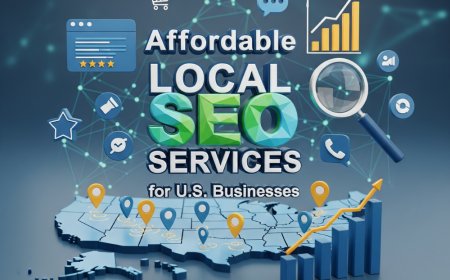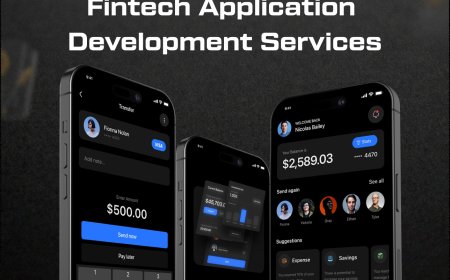Dynamics 365 Pricing vs Competitors: Which Offers Better Value?
The key question for most organizations is: how does dynamics 365 pricing compare to its competitors—and which one offers the best value for your investment?

When choosing an integrated business solution for CRM and ERP, Microsoft Dynamics 365 stands out as one of the most robust platforms on the market. However, its not the only choice. Competitors like Salesforce, NetSuite, Zoho, and HubSpot also offer powerful tools for business operations. The key question for most organizations is: how does dynamics 365 pricing compare to its competitorsand which one offers the best value for your investment?
To answer this, we need to compare pricing structures, features, scalability, and total cost of ownership. Each platform caters to different business sizes and needs, so choosing the right solution goes beyond just the monthly subscription cost.
Understanding Dynamics 365 Pricing
Microsoft Dynamics 365 uses a modular pricing approach. Businesses subscribe to individual appssuch as Sales, Customer Service, Finance, and Supply Chainand only pay for what they need. Pricing depends on user roles and the type of access required:
-
Sales Professional: ~$65/user/month
-
Sales Enterprise: ~$95/user/month
-
Customer Service Professional: ~$50/user/month
-
Business Central Essentials: ~$70/user/month
-
Finance or Supply Chain Management: ~$180/user/month
-
Team Member License: ~$8/user/month
-
Attach Licenses: Discounted rates for additional apps for the same user
This flexibility allows small and large companies alike to tailor their subscription to operational needs and budget.
Dynamics 365 vs Salesforce
Salesforce is a dominant player in the CRM space, offering Sales Cloud, Service Cloud, and a suite of add-ons.
-
Salesforce Essentials: ~$25/user/month (basic CRM)
-
Sales Cloud Professional: ~$80/user/month
-
Sales Cloud Enterprise: ~$165/user/month
-
Add-ons for automation, analytics, and AI often raise the total cost
While Salesforce offers deep CRM capabilities, the pricing increases significantly with advanced features. Unlike Dynamics 365, it doesnt natively include ERP tools, meaning businesses may need additional platforms (and costs) for finance and operations.
Value Comparison:
Salesforce may offer a more CRM-focused user experience, but Dynamics 365 offers broader business coverage and deeper integration with Microsoft 365 tools, making it more cost-effective for companies that need both CRM and ERP functions.
Dynamics 365 vs NetSuite
Oracle NetSuite is another major ERP competitor offering cloud-based financials, inventory, and e-commerce solutions.
-
Starting Price: ~$99/user/month + ~$999/month base license
-
CRM module included, but customization and implementation costs are often higher
-
Focus: Mid-sized to large enterprises with complex needs
NetSuite is a powerful ERP solution, but its pricing model is less transparent and more rigid. Many features are bundled into larger packages, and customizations typically require professional services, adding to long-term costs.
Value Comparison:
NetSuite is strong for ERP, but Dynamics 365s modular pricing and attach licensing offer greater flexibility. Additionally, Microsofts native integration with tools like Outlook and Excel gives it an edge in usability for existing Microsoft users.
Dynamics 365 vs Zoho CRM and Zoho One
Zoho is known for affordability and ease of use, especially for small businesses.
-
Zoho CRM Standard: ~$14/user/month
-
Zoho CRM Enterprise: ~$40/user/month
-
Zoho One Suite (includes multiple apps): ~$45/user/month
Zoho offers excellent value for startups and small businesses with basic CRM needs. However, it lacks the enterprise-grade features, scalability, and unified ERP-CRM experience that Dynamics 365 delivers.
Value Comparison:
Zoho wins on price for micro-businesses, but Dynamics 365 offers better performance, security, and integration for businesses that anticipate growth and complexity.
Dynamics 365 vs HubSpot
HubSpot is a popular choice for inbound marketing, with free CRM capabilities and paid add-ons.
-
CRM: Free
-
Marketing Hub Starter: ~$45/month
-
Sales Hub Professional: ~$90/user/month
-
Enterprise plans: Can exceed $1,200/month depending on features and contacts
HubSpot is easy to use and quick to implement but becomes expensive as needs grow. Its CRM capabilities are limited compared to Dynamics 365s enterprise offerings.
Value Comparison:
HubSpot is ideal for marketing-led SMBs, but Dynamics 365 provides more comprehensive solutions for sales, service, and operationsespecially when full business system integration is required.
Total Cost of Ownership (TCO)
When evaluating dynamics 365 pricing against competitors, consider not only subscription fees but also:
-
Implementation and customization costs
-
Training and user adoption
-
Third-party integrations
-
IT support and scalability needs
-
Future upgrade and expansion requirements
Microsoft offers seamless integration with the Microsoft 365 ecosystem, helping reduce third-party tool costs and training time. Additionally, the cloud-based model eliminates infrastructure costs, making long-term ownership more affordable.
Conclusion
Dynamics 365 pricing is structured to give businesses flexibility, scalability, and value across both CRM and ERP needs. While platforms like Salesforce, NetSuite, Zoho, and HubSpot have their strengths, Dynamics 365 offers the best all-in-one solution for businesses looking to grow with a unified, secure, and enterprise-ready system.
For organizations already using Microsoft toolsor those planning to scale operations across departmentsDynamics 365 provides a strong return on investment. Its pricing model isnt just competitive; its strategically designed to deliver value with every user and every application.




























